China deepens purging of the military to prepare for battle
China's upper echelons are seemingly on shaky ground as two of its five state councillors have disappeared from the public eye. However, the purging of the military could be seen as a necessary step to ensure the reliability of the military and that China is ready for modern-day warfare, says Lianhe Zaobao associate editor Han Yong Hong.
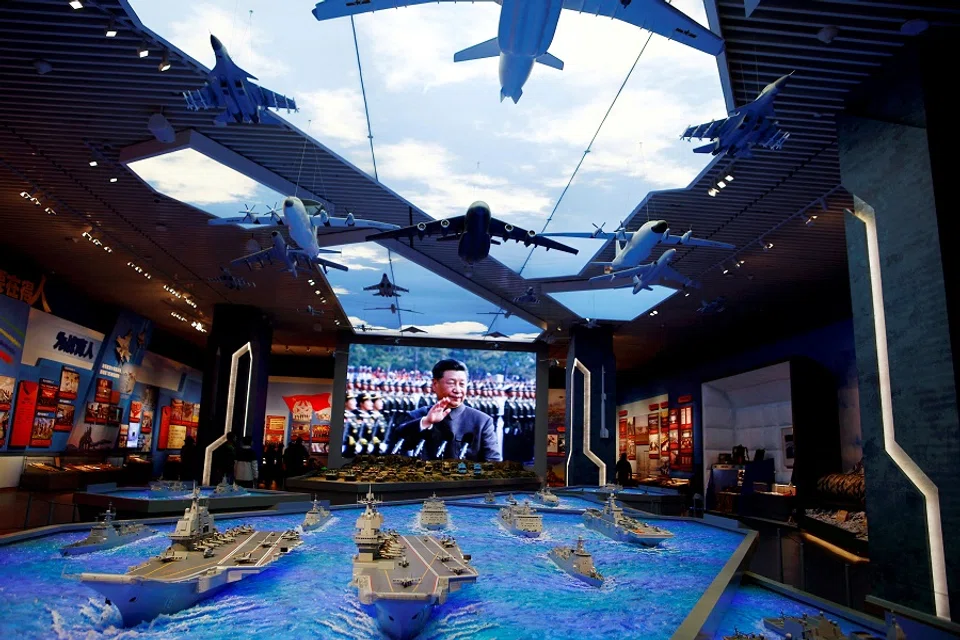
On 27 September, China's Politburo held a collective study session attended by its state councillors, with the exception of Defence Minister Li Shangfu and former Foreign Minister Qin Gang.
Although Qin still holds the position of state councillor, he has been removed from his position as foreign minister since late July, signalling his official fall from grace. His absence from the study session came as no surprise.
However, this is the first time Li Shangfu was absent from a public event without a clear reason, essentially lending weight to rumours that he is under investigation for corruption.
Missing leaders
In mid-March this year, five state councillors took an oath in front of the nation as they assumed their positions in a changing of the political guard. Yet half a year later, only three remain - the speed at which China's sub-national level leaders (副国级) "get into trouble" is shocking.
In contrast with Qin Gang, who is believed to be in trouble for matters pertaining to personal disciplinary violations, China's military is going through a maelstrom with several high-level officials and generals going "missing" one after another. This has raised concerns on how the combat capabilities of the People's Liberation Army (PLA) will be impacted.
On 25 September, astronauts from the Shenzhou-12 to Shenzhou-15 missions were honoured at a ceremony held in Beijing. According to CCTV reports and videos, vice-chairman of the Central Military Commission (CMC) General He Weidong presented the awards on behalf of paramount leader Xi Jinping, while head of the Equipment Development Department General Xu Xueqiang and key personnel from the PLA Strategic Support Force were seated on stage during the ceremony. A notable absence, however, was commander of the Strategic Support Force General Ju Qiansheng.
Since the middle of this year, China's upper echelons have been deepening their purge of the military. Prior to Li Shangfu's disappearance, the top brass of the Rocket Force was purged in July.
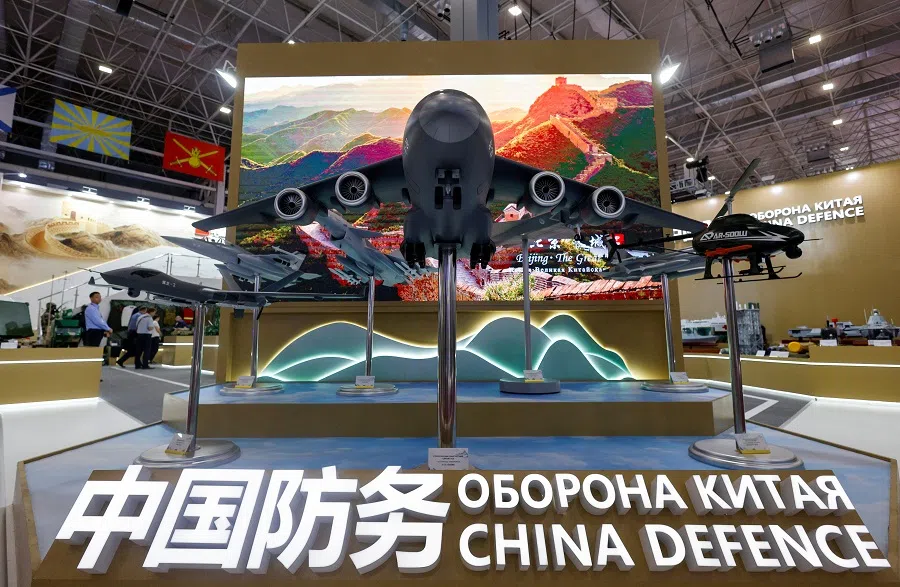
Rumours that 61-year-old Ju was implicated either in a corruption case involving high-ranking officials or in a case of leaking state secrets surfaced in mid-July. Soon after, on 31 July, he was absent from a reception celebrating the anniversary of the founding of the PLA. With him also missing out on the award ceremony for the astronauts this time around, the writing is on the wall for Ju.
Investigations into key units
The Strategic Support Force helmed by Ju was set up after the military reform in 2016, and is described as "a key force to win wars", with some claiming that it is the most technologically advanced unit in the PLA.
The deputy theatre command-level unit is in charge of five key areas: intelligence support, technical surveillance, electromagnetic warfare, cyberwarfare and psychological warfare. Its key mission is to ensure that the PLA has the advantage when it comes to combat in air, space, network and electromagnetic fields. The unit has two key departments under its purview: the Network Systems Department and Space Systems Department, with the latter in charge of the Astronauts Corps.
As the Strategic Support Force is hardly seen in public, the conferment of titles and awards ceremony on 25 September gives the outside world a rare glimpse of its top brass. According to television footage, those present at the ceremony included Strategic Support Force officials such as political commissar General Li Wei; Deputy Commander Bi Yi; deputy political commissar and secretary of Commission for Discipline Inspection Lt Gen Yang Xiaoxiang; deputy political commissar and director of the political department Lt Gen Ding Xingnong; Space Systems Department commander General Hao Weizhong; and Network Systems Department commander Lt Gen Chen Hui.
Hao Weizhong was the former deputy commander of the Space Systems Department who had taken over Shang Hong, the commander of the unit who was suddenly disqualified from being a delegate to the Chinese Communist Party's 20th Party Congress last year. The reasons for Shang's disqualification and his whereabouts remain a mystery, but it is believed that he is under investigation.
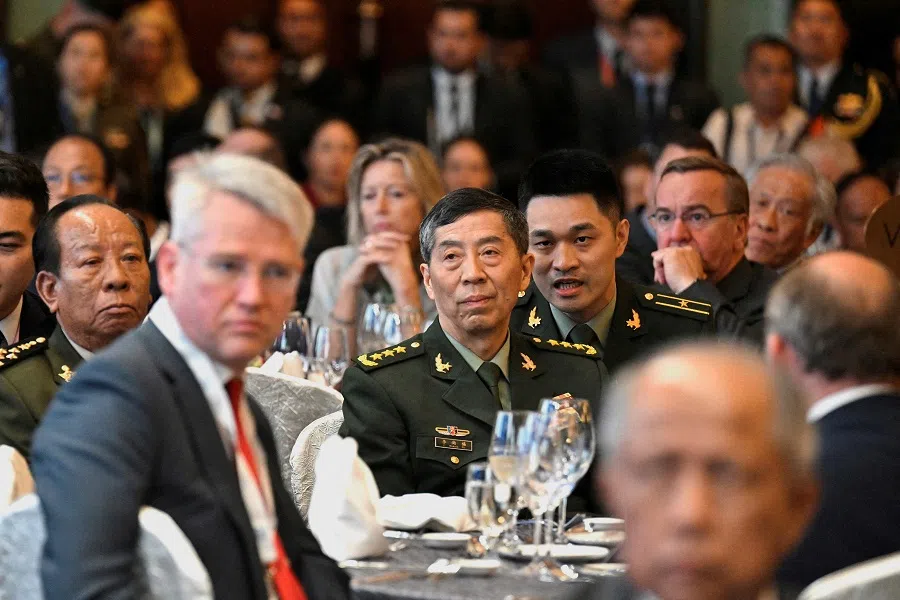
Shang's curriculum vitae showed that he had once served at the equipment and aerospace department and was chief of staff of the General Armaments Department, as well as director of the Jiuquan Satellite Launch Center.
Since the middle of this year, China's upper echelons have been deepening their purge of the military. Prior to Li Shangfu's disappearance, the top brass of the Rocket Force was purged in July. Its commander and political commissar were both replaced, while two among its one incumbent and two former deputy commanders are rumoured to be under investigation.
Furthermore, it was not until three weeks after one of its officials passed away that a funeral was held. Investigations into the top brass of the Strategic Support Force are also underway.
Defence industry implicated
As the departments in charge of armaments, aerospace and other cutting-edge military science and technology, the Equipment Development Department, Strategic Support Force and Rocket Force are the "heavy weapons" for the defence of the country. Among them, the Equipment Development Department holds a large war chest and is a high-risk area for corruption.
At the same time, the operations and personnel of these three cutting-edge departments also overlap. For example, Li Shangfu long served at the armaments department, was director of the Xichang Satellite Launch Center, and also briefly served as deputy commander and chief of staff of the Strategic Support Force.
However, the recent downfall of high-ranking military leaders has taken place while they were still in office, indicating a more rapid and aggressive anti-corruption campaign, which is directly linked to the attitude of the leadership and China's current military needs.
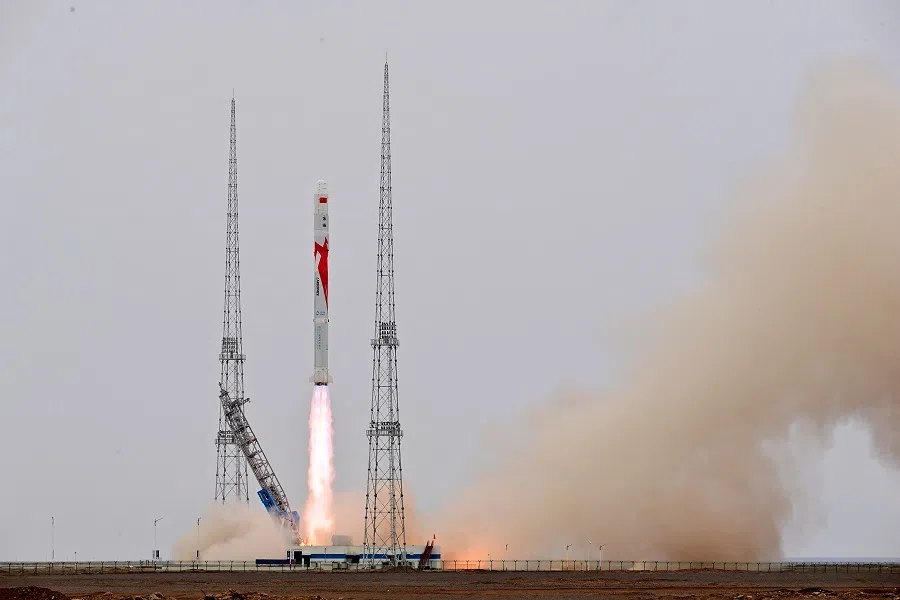
Thus, when a senior official rats on others while under investigation, it causes a ripple effect and implicates increasingly more people from other departments, until ultimately uncovering a group corruption case (窝案).
This "clean-up" is expanding into the defence industry. According to Ming Pao, four major state-owned defence enterprises - Aviation Industry Corporation of China (AVIC), AviChina Industry & Technology Company Limited, China North Industries Group Corporation Limited (NORINCO), and China South Industries Group Corporation (CSGC) - have also seen their high-ranking officials taken in to assist with investigations.
The big question now is whether it will eventually involve the first Rocket Force commander and former Minister of National Defense Wei Fenghe. In the news coverage of China's National Day reception aired on CCTV on 28 September, it was reported that former CMC members attended the reception in Beijing, but Wei was not seen in the footage.
Winning the modern-day battle
Corruption within the Chinese military is not new. Prior to the 18th National Congress, two vice-chairmen of the CMC, General Guo Boxiong and General Xu Caihou, had already stepped down before they were revealed to be involved in serious corruption. However, the recent downfall of high-ranking military leaders has taken place while they were still in office, indicating a more rapid and aggressive anti-corruption campaign, which is directly linked to the attitude of the leadership and China's current military needs.
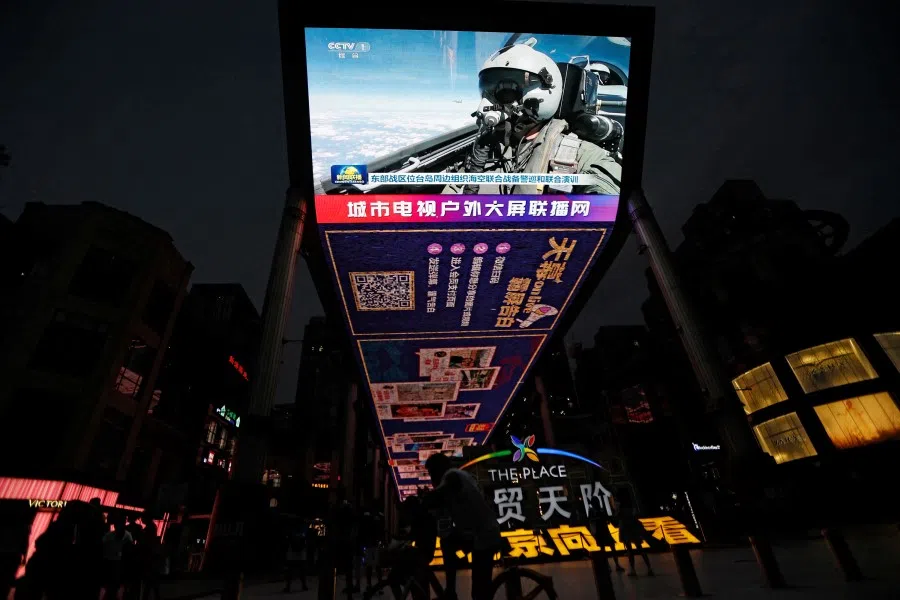
To win modern-day battles, the loyalty of senior military leaders is crucial; in particular, there can be no fear of leaks. In the much-watched Taiwan Strait, the PLA has normalised activities such as encircling and deploying aircraft and vessels around Taiwan. The exercises look impressive, but when it comes to taking Taiwan swiftly through coordinated efforts in modern information warfare, the PLA has no real experience at all. This makes it all the more necessary to eliminate the "cancer" of corruption to ensure the reliability of the military.
From another perspective, the alarming level of corruption among high-ranking officials also shows that Beijing will continue to use various means to deter Taiwan. However, when it comes to the possibility of military reunification with Taiwan, it is probably something they do not want and should not attempt in the short to medium term.
Following the "incident" with Li Shangfu, the most likely candidate to take over as defence minister is General Liu Zhenli, a 59-year-old CMC member and chief of staff of the CMC's Joint Staff Department.
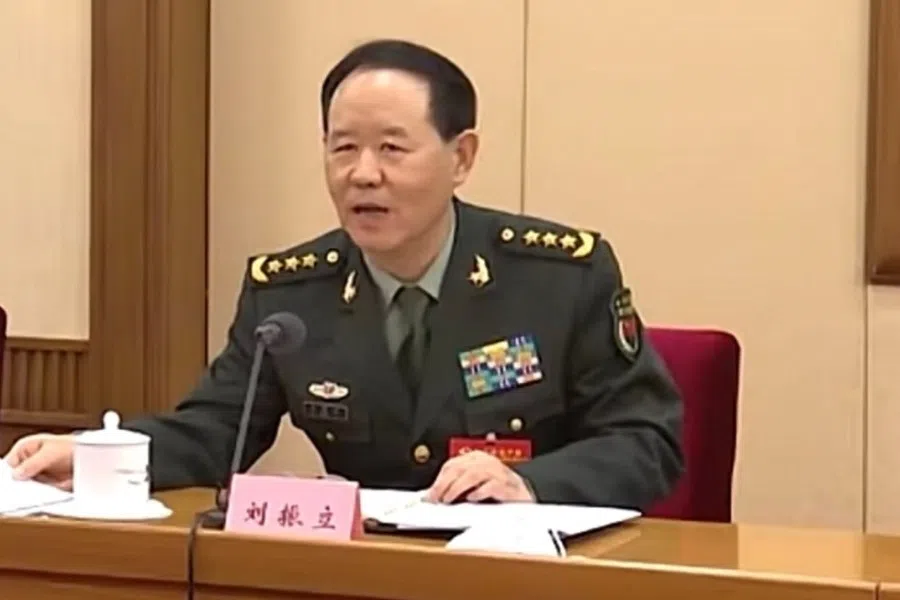
Following the "incident" with Li Shangfu, the most likely candidate to take over as defence minister is General Liu Zhenli, a 59-year-old CMC member and chief of staff of the CMC's Joint Staff Department.
Liu was involved in the China-Vietnam border conflict in 1986 and received first-class merit for his role, making him one of the few senior officers with actual combat experience. He is also currently the youngest member of the CMC and ranks just below Li Shangfu, so it is highly likely that he will be promoted.
This article was first published in Lianhe Zaobao as "中国军队深度整顿中".
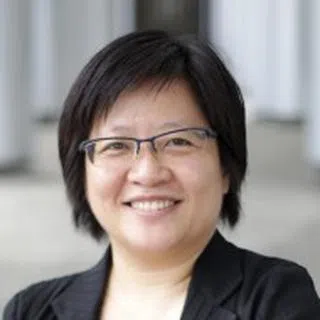


![[Video] George Yeo: America’s deep pain — and why China won’t colonise](https://cassette.sphdigital.com.sg/image/thinkchina/15083e45d96c12390bdea6af2daf19fd9fcd875aa44a0f92796f34e3dad561cc)
![[Big read] When the Arctic opens, what happens to Singapore?](https://cassette.sphdigital.com.sg/image/thinkchina/da65edebca34645c711c55e83e9877109b3c53847ebb1305573974651df1d13a)
